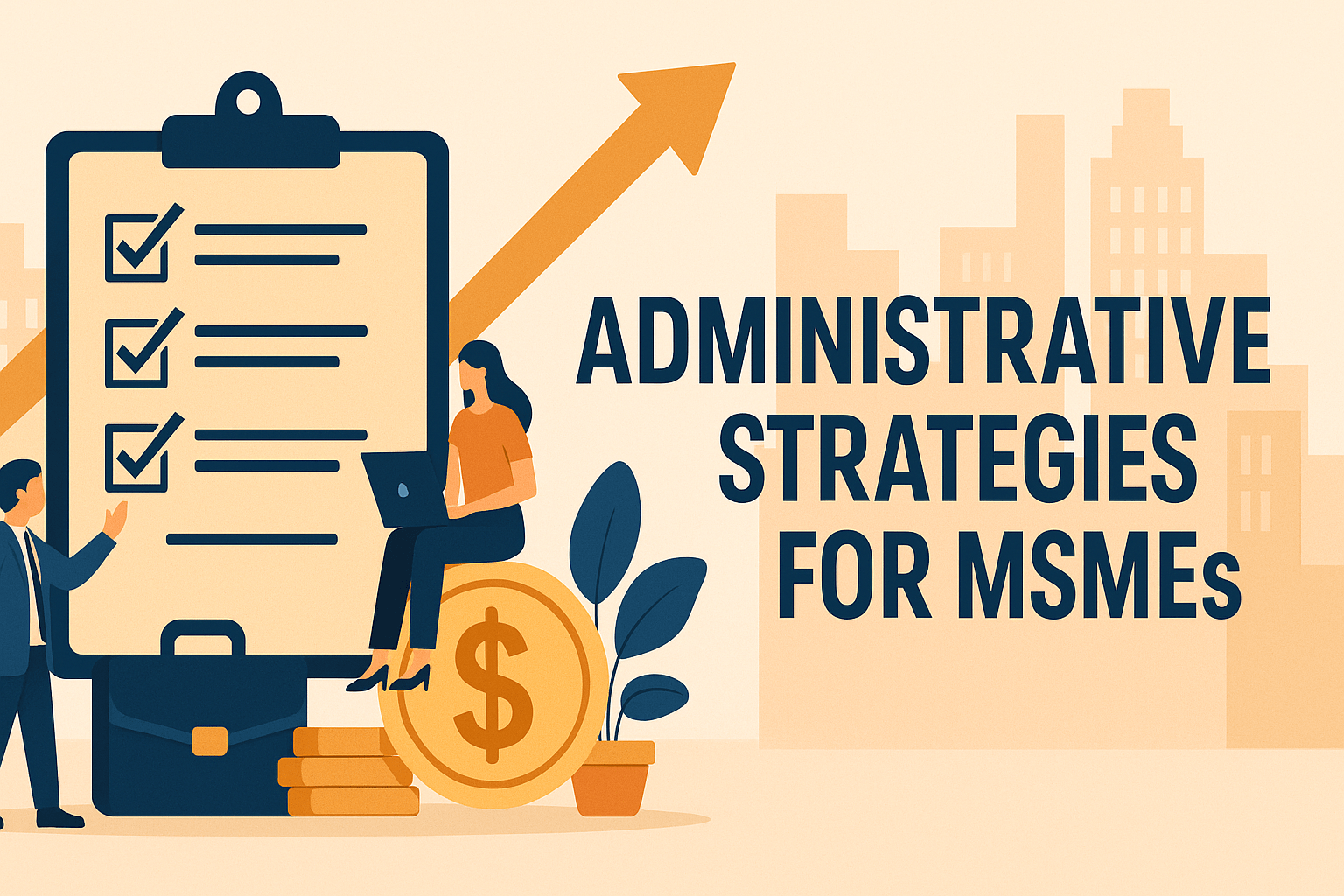
Building Strong MSMEs Through Smart Administration

The foundation of Indonesia’s economic expansion is made up of Micro, Small, and Medium-Sized Enterprises (MSMEs), which foster innovation and create jobs. In a constantly shifting economic landscape, MSMEs must implement efficient administrative techniques to stay viable and competitive. These businesses can scale operations and sustain long-term growth by utilizing solid administrative foundations, especially in strategic planning, financial management, and human resources.
Administrative Strategy’s Significance for MSMEs
Administrative strategies provide systematic processes for resource planning, organization, and control, which help to inform company decisions. Because of their size, MSMEs frequently have trouble formalizing administrative procedures. Entrepreneurs acquire essential abilities for making wise decisions through business administration frameworks taught in programs such as Telkom University’s Bachelor of Business Administration Program.
Important MSMEs’ Administrative Domains
- Strategic Planning
Setting long-term objectives and figuring out the steps required to reach them are both parts of strategic planning. This aids MSMEs in spotting opportunities, avoiding operational risks, and adjusting to changes in the market.
- Management of Finances
Accurate financial forecasting, accounting, and budgeting are essential. Digital tools that help with cash flow monitoring and effective capital allocation are very beneficial to MSMEs.
- Management of Human Resources
Training, hiring, and employee satisfaction are key components of HR initiatives. Developing a knowledgeable and driven workforce can help MSMEs increase output and client satisfaction.
Administration and Digital Transformation
Using digital technologies increases the effectiveness of administration. Payroll, inventory, and customer service online platforms minimize human error and manual labor. Resources and training are provided by government programs and academic institutions, such as S1 Administrasi Bisnis Telkom University, to hasten the use of digital technology.
Difficulties with Administrative Implementation
MSMEs frequently face obstacles such as a lack of formal business administration education, a lack of resources, and opposition to change. Collaborations with organizations like Telkom University, which provide business strategy advice and mentorship, aid in closing this gap.
Top Techniques for Successful Administration
- Establish specific goals and monitor your progress on a regular basis.
- To handle money, use accounting software.
- Create SOPs, or standard operating procedures.
- Take part in company development initiatives, such as those provided by Telkom University company School.
- Encourage staff growth and inspiration.
Higher Education’s Influence on MSME Administration
Students enrolled in the S1 Administrasi Bisnis Telkom University program gain hands-on experience in managing business operations. Graduates frequently use their expertise in MSME settings, which promotes scalability and organized growth.
References
Tambunan, Tulus T.H. (2019). Development of MSMEs in Indonesia. Journal of Indonesian Economy and Business.
OECD. (2022). Digital Transformation for MSMEs. Retrieved from www.oecd.org
Ministry of Cooperatives and SMEs, Indonesia. (2023). MSME Data and Growth Trends.
Telkom University Official Website – S1 Administrasi Bisnis: https://telkomuniversity.ac.id
Harvard Business Review. (2021). Why Administrative Strategy Matters in SMEs.
Tags : S1 Administrasi Bisnis | Administrasi Bisnis | S1 Administrasi Bisnis Telkom University